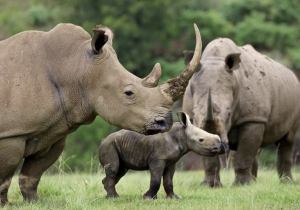Originally published in Business Day.
The contribution of the Convention for International Trade in Endangered Species (CITES) to the conservation of African rhino over the past 40 years has been ineffective. Their trade ban has been a failure but there has been little attention paid to changing strategy. There is no indication that CITES will be of any value to rhino in the future. The continental picture is that CITES has been of little net value to African wildlife. Again, there is no indication that the future will be any different.
CITES is an anachronism that lives and grows without being very effective and yet it is supported by national environmental agencies. Why? Perhaps, the reason is that it is established and countries like to belong to a large international organisation that appears to have some purpose. Also, all the rules and permits give bureaucrats more power and they like that. Significantly, it provides the bureaucrats with frequent and luxurious travel opportunities, at the expense of the taxpayer.
Donor agencies (NGOs) like it because it underwrites continued conservation crises and that gives the agencies purpose. Criminals love it because it allows them a trade monopoly and large profits.
It makes no sense for South Africa to belong to CITES in its current form. Either CITES must change and become more effective or we should resign. But, we make no attempt to change CITES and we are far from having the courage to resign. Instead, we are in awe of and kowtow to an organisation that may well do more harm than good.
An example of this absurdity is the current debate around domestic trade in rhino horn in South Africa. The Department of Environmental Affairs (DEA) is currently testing public opinion on all manner of costly regulations, permits and penalties to restrict internal trade. Why should South Africans not be entitled to trade horn domestically in the same way as we are allowed to trade everything else? Because, DEA are afraid that unrestricted domestic trade will lead to the export of horns, which would be in contravention of CITES’s rules.
Market logic suggests that supplying the market with horn (blood free) will reduce poaching and reducing poaching is what we all want. So, horn leaking out of the country would be a good thing for rhino but a bad thing for CITES compliance.
There should be no restriction on internal trade and if horn leaks out, which it will, then that will be good for rhino. It will not be good for the pretence of CITES having control over the horn market, but our rhino are more important than maintaining that fallacy. It may even be an inducement for CITES to change and to regulate a legal horn trade, sensibly, rather than banning trade which has not worked and will never work and simply enriches criminals and
charlatans. About 1,100 poached horn-sets, with a retail value of R3.4 billion, are exported annually without any attention being paid to CITES’s rules.
CITES needs to change and, for one thing, incorporate the potential to appeal decisions made at Conferences of the Parties (CoPs), such as the illogical decision not to allow Swaziland to sell its horn. If there was an “Appeal Court” that reviewed and disallowed illogical decisions, that would make a big difference to the standard of debate and decision making at the CoPs and to the effectiveness of CITES.
Parks in Africa need the income that horn and ivory could provide and that income can only come from legitimate exports. Preventing parks, which are essential to conservation in Africa, from earning much needed income, just hastens their demise.
South Africa needs to spend its time and money on finding conservation solutions rather than propping up a system that has been and is a failure.
Michael Eustace 27th February 2017



